Navigating sustainability reporting and compliance through digitalization
Written by Nora Burkey - article sponsored by The Chain Collaborative
In 1971, the Committee for Economic Development, which is the policy center of the Conference Board – a global business and research association – presented the idea of a social contract between business and society. The concept highlights that businesses function because of public consent, and hence, it is understood that they should also serve the needs of the public, or society. According to the Committee for Economic Development, there are three main ways in which a company is supposed to serve society and meet their social contract:
By creating jobs in their community, which contributes to the economic growth of the local economy.
By operating fairly and honestly with all stakeholders that interact with their business, including customers, employees, and product/service providers.
By becoming more involved in improving the world around them, as that is the world that they depend upon to function.
In the coffee sector, certifications are one way that companies demonstrate their compliance with the social contract. B Corp certification may highlight a company’s responsibility towards their employees, the local economy, and the broader supply chain, while product-specific certifications may highlight a company’s commitment to responsible sourcing and environmental protection. Digitalization, of course, is highly important for certification, as cooperatives, associations, and companies alike have digitized their auditing processes to demonstrate compliance. The field of sustainability compliance, however, has become much more complex than just certifications – which is in part a result of digitalization.
Picture credit Canva
The complexity of sustainability reporting
When analyzing the field of sustainability compliance, it is important to keep in mind that not everyone agrees on the best way to meet the social contract. Put simply, “operating fairly and honestly” is up for interpretation, and there are diverse views about how exactly we should go about “improving the world around us,” especially when there are limited means at our disposal. Hence, for decades, we have seen the emergence of competing standards, and companies who have chosen to refrain from adopting any particular standard at all.
Of late, however, the field of sustainability reporting has gotten more complex as we have learned new things about sustainability and discovered new ways to measure the impact of our efforts – and digitalization has had an important part to play in this. Consider, for example, the relevance of carbon accounting for coffee sector actors. As the industry has increased its capacity to assess carbon footprints at scale, establishing carbon footprint baselines and measuring reductions has become more common and even more expected in some cases. Of course, carbon accounting is made possible by digital tools, and would likely not be taking place at all without the application of on-farm smart surveys, online calculators, and digital analysis platforms.
Furthermore, as new governmental regulations have emerged, such as the European Union Deforestation Regulation (EUDR), we see that their related requirements are dependent on the use of technology – in the case of the EUDR, GPS and remote sensing technology. In other words, the increased complexity of sustainability compliance is essentially made possible by the advances of technology and digitalization. Of course, while technological advances have made sustainability compliance more complex and more challenging for coffee industry actors, digital advances have also allowed us to simplify, streamline, and improve sustainability reporting.
Aligning impact strategies and digitalization efforts
As companies and sustainability professionals attempt to meet corporate accountability and understand how best to adhere to various laws and standards, they are increasingly turning to online education – another opportunity made possible by technological advances. However, it can be quite challenging to choose the right platform for one’s context – especially as coffee industry actors are attempting to both build data collection and digitalization approaches, and ensure these approaches align with their impact strategy.
The Chain Collaborative’s new course on Sustainability Reporting, recently launched in collaboration with Coffee Knowledge Hub, highlights the intersection between sustainability reporting and digitalization, and offers insight into how to best share and visualize data for various audiences. Through a series of six parts, 23 pre-recorded lessons, and 40 pages of written instruction, this on-demand course not only provides information on the different types of industry-wide reporting, key terminology, and opportunities and methodologies for data collection and organization, it also supports students to develop a robust reporting system and structure.
Nico Herr, the Chief Operating Officer of Mountain Harvest, enrolled in the course when it was first offered by The Chain Collaborative as a live, on-line experience. When asked what motivated her to join, Nico said, “Mountain Harvest has a strategic goal of developing our in-house reporting systems to not only share impact-focused data with our stakeholders, but also to ensure we are being responsive and responsible for the impact we aim to create.”
Nico also shared that when Mountain Harvest began considering an in-house data system, they realized “that most off-shelf solutions being beta-tested were still curated from a buyer’s lens” and that “there is a language behind impact-focused reporting, a language often dictated by those occupying the most powerful seats within our supply chain.” Ultimately, in order to ensure that they could build a system where producers had the power to share the information that was meaningful to them, Mountain Harvest decided to build their own tool. For this Ugandan-based company, producer-led solutions are the bedrock of innovation in the coffee sector.
While remaining committed to producer-led solutions, Nico also explained that their tool is not being “built in a vacuum.” Indeed, Mountain Harvest noted that “data is powerful. Knowing this, we have to speak the same language as the decision-makers of the industry. ”
Optimizing sustainability reporting through digital solutions
Mountain Harvest’s journey to create a farmer-forward digital tool that aligns with the language of international sustainability reporting demonstrates that the interplay between digitalization, compliance, and impact-related communications is increasingly critical in today's evolving business landscape. Indeed, as companies navigate their social contracts with society, the need for robust, transparent, and efficient reporting systems has never been more apparent.
While technological advances may have contributed to more complexity in the reporting landscape, digital tools also offer significant opportunities to enhance data collection, analysis, and sharing; they can also facilitate more accurate sustainability reporting. Of course, the adoption of these technologies is not without challenges. The Sustainability Reporting course with Coffee Knowledge Hub offers a number of ideas and resources that can be leveraged to tackle them.
Nora Burkey
Nora is the founder of The Chain Collaborative (TCC), a non-profit whose mission is to co-create opportunities and strengthen capacities for community-led change in the coffee sector. As part of TCC, she consults for a variety of organizations in the coffee and agriculture sectors and teaches sustainability courses.



